The Spiritual Significance of Yongquan Temple: A Pilgrim’s Paradise
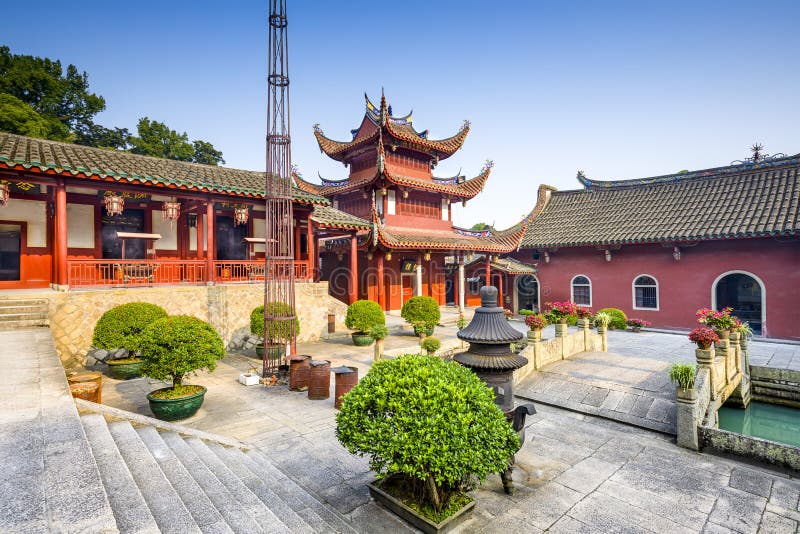
An Essential Guide to Visiting Yongquan Temple
Nestled within the serene embrace of Gushan Mountain in Fuzhou, Yongquan Temple (涌泉寺) stands as a testament to the harmonious blend of spirituality and nature. This Zen temple, renowned for its tranquil ambiance and stunning landscapes, invites visitors to experience a peaceful retreat from the hustle and bustle of modern life. As you approach, the majestic trees that arch overhead create a magical atmosphere, setting the stage for reflection and introspection.
Despite undergoing renovations, which may limit access to certain areas, the temple continues to enchant guests with its rich history and spiritual significance. Whether you’re a devout Buddhist or simply a traveler seeking beauty and calm, Yongquan Temple offers a unique glimpse into the teachings of Zen Buddhism while providing breathtaking views of the surrounding landscape. With convenient access via the metro and the option for hiking, this sacred site is an essential stop for anyone exploring Fuzhou. Immerse yourself in the tranquility, and let the essence of Yongquan Temple rejuvenate your spirit.
In This Guide
- An Essential Guide to Visiting Yongquan Temple
- The Rich History and Legends of Yongquan Temple
- Main Highlights: What You Absolutely Can’t Miss
- Planning Your Visit: A Practical Guide
- Tickets: Prices, Booking, and Tips
- How to Get There: A Complete Transportation Guide
- Local Cuisine and Accommodation Nearby
- Frequently Asked Questions
- Final Thoughts on Your Trip
The Rich History and Legends of Yongquan Temple
Nestled on Gushan Mountain in Fuzhou, Yongquan Temple (涌泉寺) is not just a serene retreat for worshippers and tourists alike; it is a monument steeped in rich history and legends that date back centuries. Originally established during the Tang Dynasty in the 7th century, the temple has witnessed the ebb and flow of Chinese history, serving as a bastion of Zen (Chan) Buddhism throughout the ages.
The temple’s name, which translates to “Spring of Eruption,” is derived from the nearby spring that flows with remarkable clarity, symbolizing the essence of life and purity in Buddhist teachings. It is said that the tranquil waters have long been a source of spiritual rejuvenation, attracting monks and seekers from across the region. Over the centuries, Yongquan Temple has undergone numerous renovations and expansions, particularly during the Song and Ming dynasties. Each period brought architectural enhancements that reflect the evolving styles of Chinese religious structures, creating a harmonious blend of tradition and artistry.
One of the most captivating legends associated with Yongquan Temple involves the eminent monk Xu Yun (Empty Cloud), who served as its abbot in the early 20th century. Xu Yun was a prominent figure in the revival of Chan Buddhism and is revered for his teachings on meditation and mindfulness. His influence transformed the temple into a center for learning and spiritual practice, drawing disciples eager to embrace the teachings of Zen. Visitors often recount stories of his profound wisdom, with many believing that his spirit continues to bless the temple to this day.
The natural beauty surrounding Yongquan Temple enhances its spiritual ambiance. Majestic ancient trees line the approach, creating a serene atmosphere that invites contemplation. As one strolls through the temple grounds, they are often enveloped by a sense of peace, amplified by the sounds of nature and the gentle whispers of history. The temple’s garden, with its carefully maintained flora, serves as a reminder of the interconnectedness of life, a core principle in Buddhist philosophy.
Today, Yongquan Temple is not only a place of worship but also a cultural landmark. While it is currently undergoing renovations to preserve its historical integrity, visitors can still explore parts of the temple, immersing themselves in its tranquil setting. The recent development of a direct metro line to the foothills of Gushan Mountain makes it easier than ever to access this sacred site, encouraging a new generation of travelers to discover its rich heritage.
For international travelers eager to connect with the spiritual and historical fabric of Fuzhou, a visit to Yongquan Temple offers a unique opportunity to step back in time and engage with the legends that have shaped this iconic site. Whether you seek solitude, knowledge, or simply a moment of reflection, Yongquan Temple stands as a testament to China’s enduring cultural legacy, inviting all who enter to ponder the mysteries of life and the teachings of Zen Buddhism.
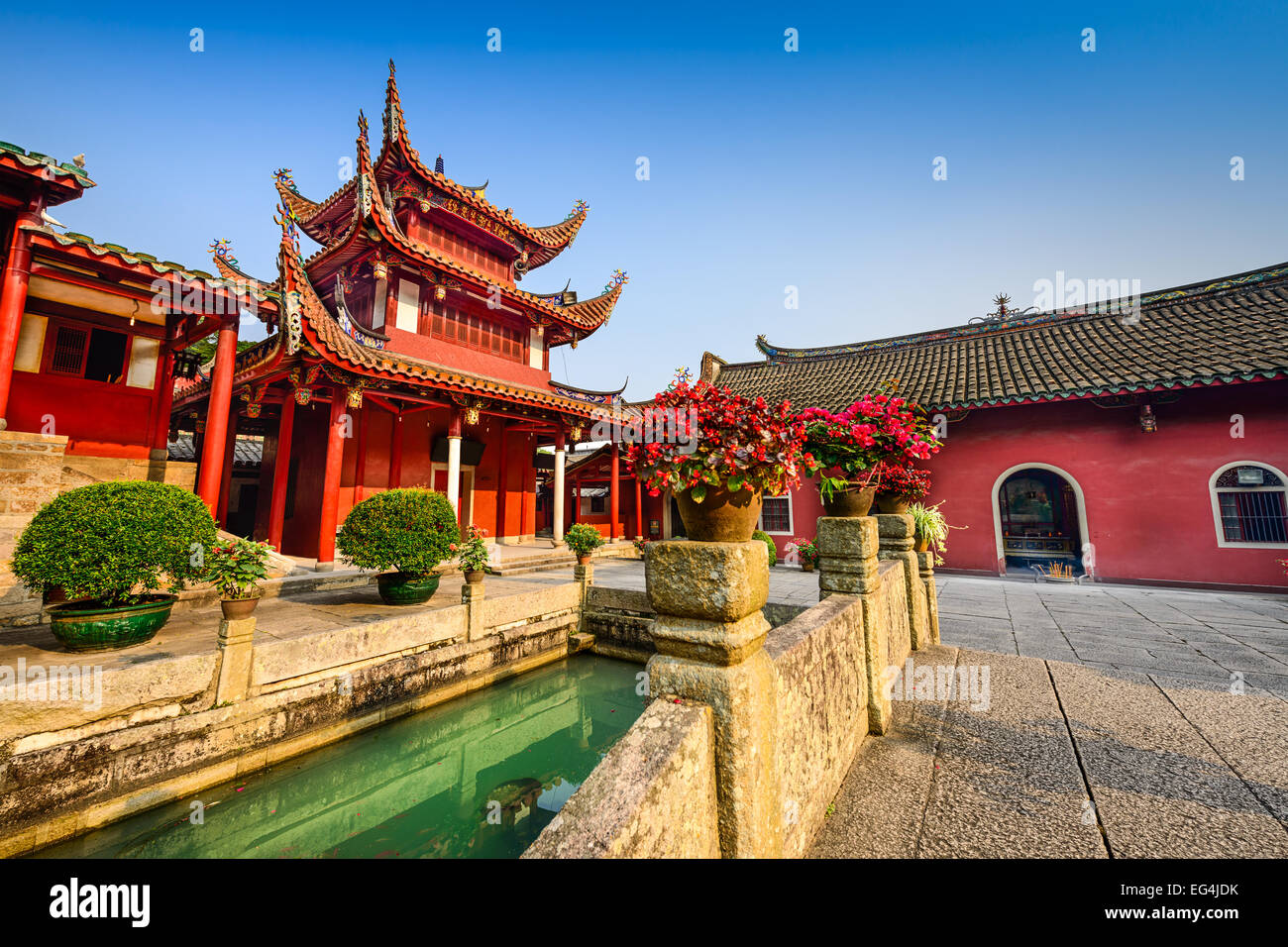
Yongquan Temple.
Main Highlights: What You Absolutely Can’t Miss
Yongquan Temple (涌泉寺), nestled in the lush surroundings of Gushan Mountain in Fuzhou, is a serene destination that beckons both spiritual seekers and nature lovers alike. Here are the must-see highlights that will make your visit unforgettable:
1. The Majestic Entrance
As you approach Yongquan Temple, prepare to be enchanted by the grand entrance adorned with ancient trees. Their towering canopies create a magical atmosphere that sets the tone for your visit. This natural beauty is the perfect prelude to the tranquility that awaits inside.
2. The Peaceful Zen Atmosphere
Yongquan Temple is renowned for its Zen (Chan) practices, making it a vital center for Buddhist teachings. As you stroll through the temple grounds, take a moment to absorb the peaceful ambiance. The harmonious sounds of nature, combined with the gentle rustle of leaves, create a meditative environment ideal for reflection and mindfulness.
3. The Stunning Architecture
The temple itself is a marvel of traditional Chinese architecture, featuring intricate carvings and vibrant colors that reflect its rich history. Although renovations are ongoing, parts of the temple remain open for exploration, allowing you to appreciate its beauty and significance.
4. The Overarching Tree Square
One of the standout features of Yongquan Temple is the expansive square shaded by a massive tree. This serene space invites you to sit, relax, and enjoy the surroundings. It is an excellent spot for photography or simply soaking in the moment, surrounded by the sounds of nature.
5. Scenic Views from the Temple
Perched on Gushan Mountain, the temple offers breathtaking views of Fuzhou. As you ascend to higher levels, don’t miss the opportunity to take in the panoramic vistas that showcase the city’s natural beauty and urban landscape. It’s a perfect backdrop for memorable photos.
6. Accessibility and Adventure
Getting to Yongquan Temple is easier than ever, thanks to the direct metro line that takes you to the foothill of Gushan Mountain. From there, you can choose to take a cable car, rent a car, or embark on a scenic hike to the temple. Each option promises a unique experience as you traverse the picturesque landscape.
7. Interact with Monks
Engage with the friendly monks who reside at the temple. While much of the conversation may be in Chinese, they are welcoming and eager to share insights about their practices and the temple’s history. If you have a Chinese-speaking companion, this can add an enriching layer to your visit.
8. Nearby Attractions
After exploring Yongquan Temple, consider extending your adventure by visiting nearby attractions such as the Dharma Eighteen Views or the ancient hiking trails of Gushan Mountain. These sites complement your temple experience and showcase the natural beauty of the region.
Final Thoughts
Yongquan Temple is more than just a historical site; it is a sanctuary for reflection, peace, and connection with nature. Whether you’re drawn by its spiritual significance, architectural beauty, or the allure of its natural surroundings, this temple is a highlight of any trip to Fuzhou.
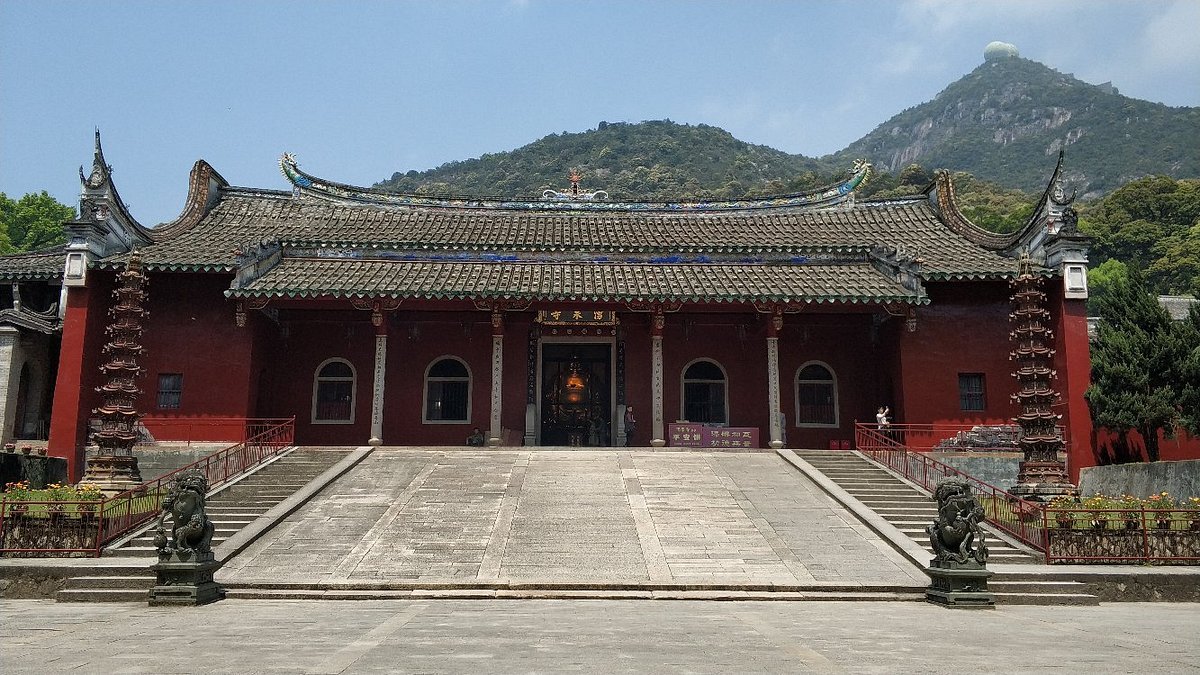
Yongquan Temple.
Planning Your Visit: A Practical Guide
When planning your visit to Yongquan Temple, nestled in the serene Gushan Mountain in Fuzhou, a few practical tips can enhance your experience. This ancient Zen temple, known for its tranquil atmosphere and stunning natural surroundings, is a must-see destination for international travelers seeking a glimpse into Chinese spirituality and history.
Getting There
Public Transport: As of April 2019, Yongquan Temple is easily accessible via the Fuzhou Metro Line 2, which takes you directly to the foothill of Gushan Mountain. From there, you have several options to reach the temple:
– Cable Car: For a scenic and leisurely ascent, take the cable car that offers breathtaking views of the surrounding landscape.
– Hiking: If you prefer a more adventurous route, hiking to the temple is a rewarding experience, allowing you to immerse yourself in the natural beauty of the mountains.
– Car Rental: Alternatively, you can rent a car for added convenience.
Entrance Fee: Please note that the temple currently charges an entrance fee of CNY 40, even though renovations are ongoing and only part of the temple is accessible.
Best Time to Visit
The temple is open year-round, but visiting in the spring or autumn is ideal. These seasons offer mild weather, making your hike or cable car ride more pleasant. Early mornings are particularly serene, providing an opportunity for quiet reflection and fewer crowds.
What to Expect
Yongquan Temple is not just a place of worship; it’s a cultural treasure. Here are some highlights to look forward to:
- Architectural Beauty: The temple’s design reflects traditional Chinese architectural styles, with intricate carvings and beautiful courtyards.
- Natural Surroundings: The approach to the temple is lined with magnificent ancient trees that create a magical atmosphere. The main square, canopied by a giant tree, is a perfect spot to relax and take in the sights.
- Cultural Insights: Engage with friendly monks who may be willing to share insights about their practices and the temple’s history, though English may be limited.
Nearby Attractions
After visiting Yongquan Temple, consider exploring other attractions in the vicinity:
- Drum Mountain (Gu Shan): Just a short distance away, this mountain offers hiking trails and additional scenic views.
- Fuzhou Revolutionary History Memorial Hall: A cultural site that provides insight into the region’s history.
- Local Dining: Savor traditional Chinese cuisine at nearby restaurants, such as Feng Chu ZiZhu Hotpot or Guohui Restaurant, both offering delightful local flavors.
Travel Tips
- Language: While some signage may be in English, having a translation app or a local guide can enhance your understanding of the temple’s rich history.
- Respectful Attire: As a place of worship, dress modestly and be respectful of the religious practices observed at the temple.
- Photography: Feel free to capture the beauty of the temple and its surroundings, but be mindful of any restrictions on photography inside worship areas.
With its rich history, stunning natural beauty, and serene atmosphere, Yongquan Temple offers a unique experience for travelers. Whether you’re seeking spiritual reflection or simply a peaceful retreat from the city, this temple is sure to leave a lasting impression.
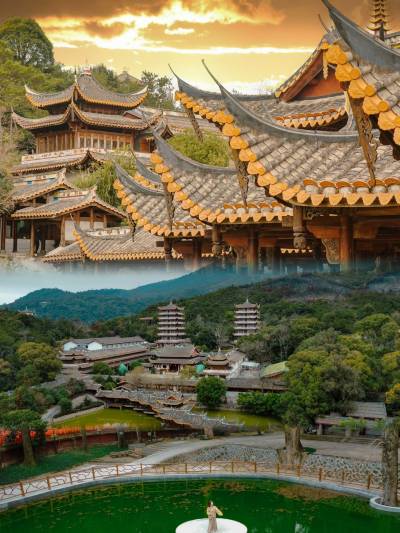
Yongquan Temple.
Tickets: Prices, Booking, and Tips
Visiting Yongquan Temple, nestled in the serene Gushan Mountain area of Fuzhou, is a delightful experience for travelers seeking a glimpse into the region’s rich cultural heritage and natural beauty.
Ticket Information
- Entrance Fee: The ticket price for Yongquan Temple is CNY 40 (approximately $6 USD). However, do note that the temple is currently undergoing renovations, and only certain areas are accessible.
- Payment Methods: Tickets can typically be purchased at the entrance. Cash is widely accepted, but it’s advisable to carry some local currency as card payment options may be limited.
Booking Tips
- No Advanced Reservations: Currently, there is no need to pre-book tickets, as entry is available on-site. However, if you’re traveling during peak tourist seasons or local holidays, arriving early is recommended to avoid long queues.
- Check for Updates: Given the ongoing renovations, check local resources or social media updates for any changes in access or opening hours.
Getting There
- Transportation: Since April 2019, a direct metro line (Line 2) conveniently takes you to the foothill of Gushan Mountain. From there, you have the option to take a cable car, rent a car, or hike to the temple.
- Accessibility: The area around the temple is well-maintained, making it accessible for most visitors. If you prefer a leisurely approach, consider the cable car for stunning views along the way.
Visitor Tips
- Timing Your Visit: The best times to visit are early morning or late afternoon when the light enhances the temple’s beauty and the surrounding nature offers a tranquil atmosphere.
- Stay Hydrated: If you plan to hike or explore the area around the temple, bring water and snacks to keep your energy up.
- Enjoy the Surroundings: Take time to wander through the Gushan Mountain area. The giant trees and scenic paths create a magical environment perfect for relaxing and enjoying nature.
By following these tips and being mindful of the ticketing details, your visit to Yongquan Temple will surely be an enriching and memorable part of your journey to Fuzhou.
How to Get There: A Complete Transportation Guide
Getting to Yongquan Temple in Fuzhou can be a delightful journey, as it is nestled in the lush surroundings of Gushan Mountain. Here’s a comprehensive guide to help you navigate your way there, whether you prefer public transport, driving, or hiking.
By Metro
One of the most convenient ways to reach Yongquan Temple is by utilizing the Fuzhou Metro. Since April 2019, Line 2 offers a direct route to the foothills of Gushan Mountain.
- Board Line 2: Depending on your starting point in Fuzhou, make your way to any station on Line 2.
- Disembark at Gushan Station: This is the nearest metro stop to the temple. From the station, you will have to walk towards the base of the mountain.
- Continue Your Journey: Once you reach the base, you can either take a cable car, rent a car, or embark on a scenic hike up to the temple.
By Bus
If you prefer the bus, Fuzhou’s public transport system is quite extensive.
- Find a Bus Station: Locate a nearby bus station that services routes to Gushan Mountain.
- Take the Right Bus: Look for local buses that have “Gushan” or “Yongquan Temple” in their route names.
- Get Off at Your Stop: Once you arrive at the Gushan area, follow signs or ask locals for directions to the temple.
By Car
For those who wish to drive, renting a car can provide flexibility and comfort.
- Rental Options: Choose a reputable car rental service in Fuzhou. Ensure you have a GPS or a map application handy.
- Driving Directions: Head towards Gushan Mountain, following signs for the temple. Parking is available at the base, where you can transition to a cable car or hike to Yongquan Temple.
Hiking
For the adventurous souls, hiking to Yongquan Temple is a rewarding experience.
- Trail Access: Begin your hike from the base of Gushan Mountain. The trails are well-marked, and the lush scenery provides a serene backdrop.
- Fitness Level: While some trails may be challenging, there are different routes available, making it suitable for various fitness levels. Make sure to wear comfortable shoes and carry water.
Entrance Fee and Hours
There is an entrance fee of CNY 40 to access Yongquan Temple, and it is advisable to check the operating hours beforehand, especially since renovations may affect accessibility.
Final Tips
- Language: While many locals may not speak English fluently, a translation app can be handy for smooth communication.
- Renovation Updates: Be aware that parts of the temple may be under renovation, so check for updates online or in person.
- Enjoy the Surroundings: Gushan Mountain offers more than just the temple; take time to explore the beautiful natural scenery and nearby attractions.
With these directions and tips, your visit to Yongquan Temple will be a memorable part of your journey in Fuzhou. Enjoy the tranquility and beauty that await you!
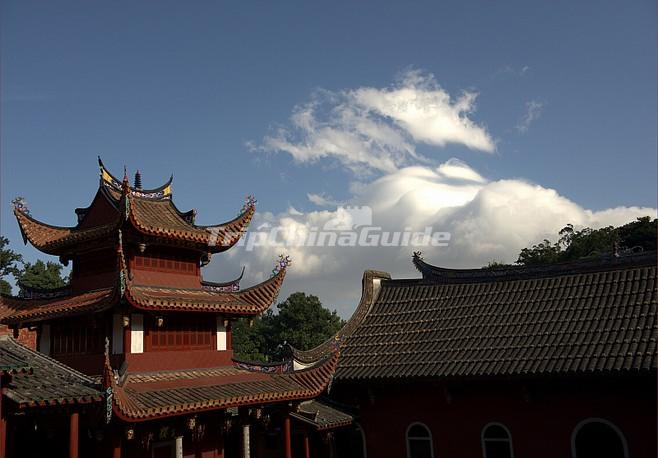
Yongquan Temple.
Local Cuisine and Accommodation Nearby
While visiting Yongquan Temple in Fuzhou, you’ll find yourself surrounded by not just spiritual serenity but also a delightful array of local cuisine and comfortable accommodations. Here’s a guide to help you savor the flavors and unwind nearby.
Culinary Delights
-
Feng Chu ZiZhu Hotpot
Rated 5.0, this hotpot restaurant is a must-visit for those looking to indulge in a communal dining experience. Located about 2.4 miles from the temple, it’s perfect for warming up after a day of exploration. Choose from a variety of fresh ingredients to cook at your table, and enjoy the rich, flavorful broths that define this popular Chinese dish. -
Sheng ShiJingDian NiuPai
If you’re in the mood for steak, this establishment is a fantastic option. Just shy of 2 miles from Yongquan Temple, it blends Western and Chinese influences, offering a diverse menu to satisfy your cravings. -
Guohui Restaurant
Offering authentic Chinese cuisine, this highly-rated restaurant is approximately 3 miles away. Known for its delicious traditional dishes, Guohui provides a taste of local flavors that will leave your palate satisfied. -
Jiang HeFeng JingZhi Indian Restaurant
For those craving something different, this Indian restaurant is a great choice. Just 3 miles from the temple, it offers a variety of spicy and aromatic dishes, perfect for those looking to break from traditional Chinese fare.
Comfortable Stays
-
Gushan Hotel
Located conveniently near the temple, this hotel provides a serene atmosphere that complements your visit to the temple. With modern amenities and comfortable rooms, it’s ideal for travelers looking to unwind after a day of sightseeing. -
Fuzhou Marriott Hotel
Slightly further away but worth the trip, this luxury hotel offers spacious accommodations with stunning views of the surrounding mountains. It’s perfect for those looking to indulge in a little luxury while still being close to nature and cultural sites. -
Hanting Express
If you’re looking for budget-friendly yet comfortable accommodations, Hanting Express is a good option. Located a short distance from Yongquan Temple, it provides clean and straightforward rooms, making it a favorite among travelers.
Whether you are enjoying a hotpot feast or resting in a tranquil hotel, the area around Yongquan Temple offers an enriching experience that combines spirituality with culinary and hospitality delights.
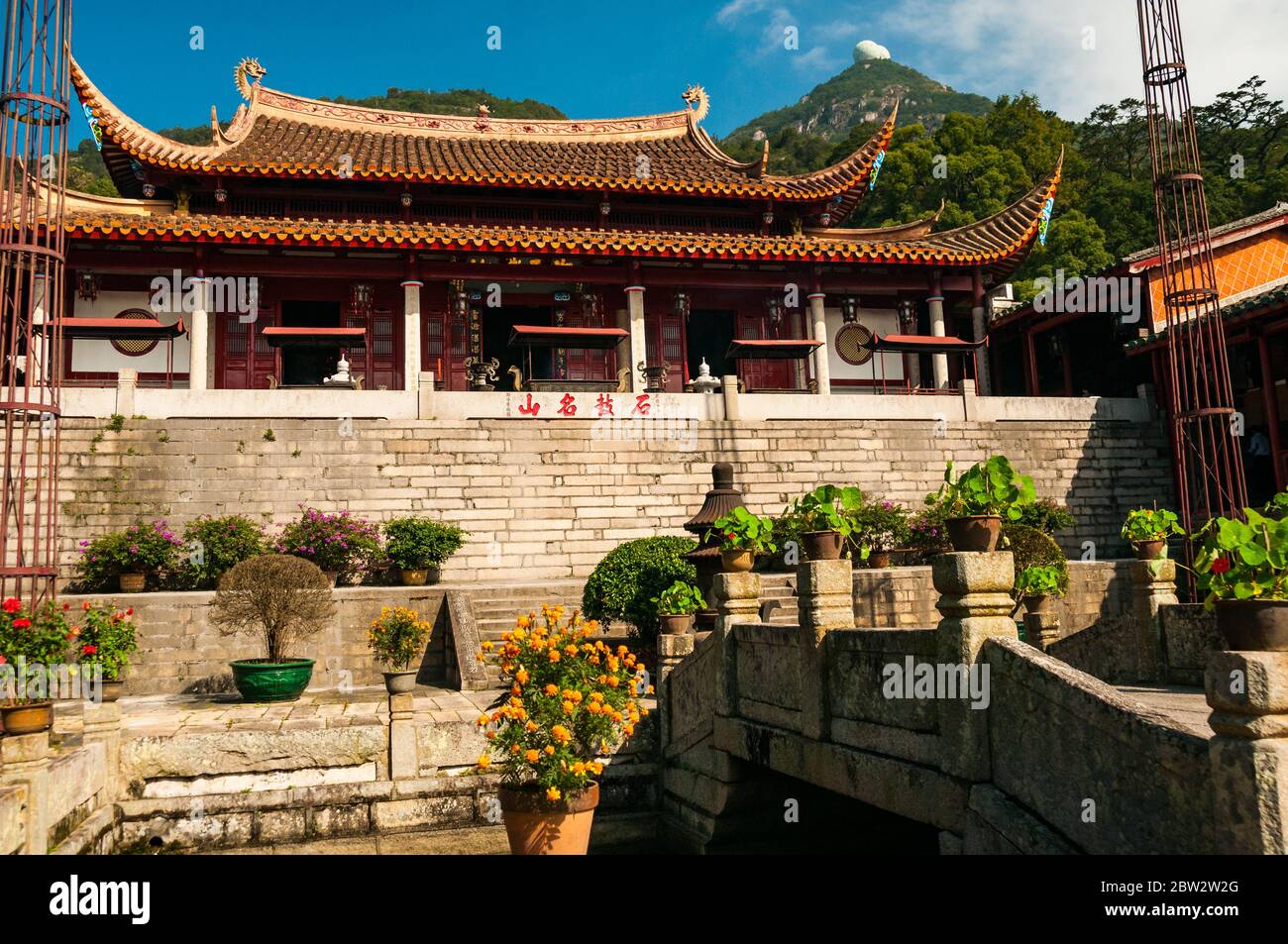
Yongquan Temple.
Frequently Asked Questions
Frequently Asked Questions about Yongquan Temple
-
What is Yongquan Temple known for?
Yongquan Temple, located on Gushan Mountain in Fuzhou, is a prominent Zen (Chan) Buddhist temple known for its serene atmosphere and beautiful natural surroundings. The temple is historically significant as it has been a teaching site for monks and features stunning architecture set among majestic trees. -
Is there an entrance fee to visit the temple?
Yes, there is an entrance fee of CNY 40. Please note that some areas of the temple may be under renovation, which could affect accessibility. -
How can I reach Yongquan Temple?
The temple is accessible via Fuzhou’s metro system. Take Line 2 to the foothill of Gushan Mountain, where you can opt to hike, take a cable car, or drive to the temple. -
Are there facilities available for visitors at the temple?
While there may be limited facilities due to ongoing renovations, visitors can expect basic amenities. It’s advisable to bring water and snacks, especially if you plan to hike or explore the surrounding areas. -
What are the best times to visit the temple?
The temple is best visited early in the morning or late afternoon when the temperatures are cooler and the light is ideal for photography. Additionally, these times tend to be less crowded, allowing for a more peaceful experience. -
Can I take photographs inside the temple?
Photography is generally permitted outside and in certain areas of the temple. However, it’s best to be respectful and ask if unsure, especially in areas where worship is taking place. -
Are there any guided tours available?
While the temple may not offer formal guided tours in English, guided tours of the surrounding Gushan area might be available. It’s recommended to check with local tourism offices or your hotel for options. -
What should I wear when visiting Yongquan Temple?
Dress modestly, as this is a religious site. Comfortable shoes are advised as you’ll likely be walking or hiking. Lightweight clothing is recommended, especially during warmer months, while bringing a light jacket for cooler evenings can be beneficial.
Final Thoughts on Your Trip
As you wrap up your visit to Yongquan Temple, take a moment to reflect on the serene beauty and rich spiritual history that envelops this remarkable site. Nestled on the gentle slopes of Gushan Mountain, the temple invites you to immerse yourself in its tranquil atmosphere, surrounded by ancient trees that seem to whisper stories of centuries past. Each step through its peaceful grounds is a journey into the heart of Zen Buddhism, where the teachings of harmony and mindfulness resonate deeply.
Despite ongoing renovations, the temple remains an active place of worship and learning, offering a glimpse into the lives of the monks who dedicate themselves to their practice. Whether you chose to hike, take a cable car, or simply relax in the shade of its magnificent trees, Yongquan Temple provides a perfect backdrop for contemplation and connection.
So as you leave, carry with you not just the memories of breathtaking views and the gentle rustle of leaves, but also the essence of tranquility that this sacred space imparts. Let it inspire you to seek moments of peace in your everyday life, reminding you that stillness can be found even amidst the chaos of the world. Safe travels, and may your journey continue to be filled with discovery and reflection.